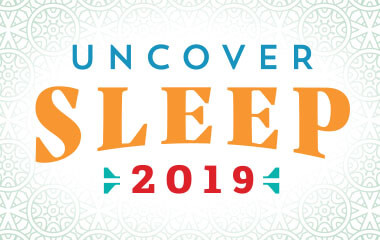SAN ANTONIO – Small intestine bacterial overgrowth (SIBO) may be more prevalent among patients with restless legs syndrome (RLS), according to preliminary findings from a small, new study.
Results show that SIBO was found in all seven participants who have RLS. In contrast, the prevalence of SIBO in the general population is estimated to be no more than 15%.
“We’ve observed extremely high rates of small intestinal bacterial overgrowth in the RLS group,” said lead author Daniel Jin Blum, Ph.D., D.B.S.M., an adjunct clinical instructor at Stanford Center for Sleep Sciences and Medicine in Redwood City, California. “Exploring the relationship between RLS and gut microbial health has the potential to open novel avenues for possible detection, prevention and treatment for RLS and other sleep disorders.”
SIBO is a condition in which rare gut-residing bacteria are over-represented in the gut. RLS is a sensorimotor disorder characterized by a complaint of a strong, nearly irresistible urge to move the limbs that is often accompanied by other uncomfortable sensations. These symptoms begin or worsen during periods of rest or inactivity such as lying down or sitting, are partially or totally relieved by movement such as walking or stretching, and occur exclusively or predominantly in the evening or at night.
Low iron in the brain is a key risk factor for RLS. According to the authors, this brain iron deficiency may be secondary to dietary iron deficiency or, potentially, gut inflammation.
Study participants completed questionnaires concerning sleep and SIBO symptoms and took home a fecal collection kit and a SIBO breath test kit. Fecal samples were examined by the University of Minnesota Genomics Center, and SIBO breath samples were evaluated by Aerodiagnostics for hydrogen and methane abnormalities.
Additional study participants continue to be recruited at the Stanford Sleep Center. Further analyses will examine fecal microbial composition, subtypes of RLS iron deficiency, and comparisons with insomnia.
The research abstract was published recently in an online supplement of the journal Sleep and will be presented Sunday, June 9, in San Antonio at SLEEP 2019, the 33rd annual meeting of the Associated Professional Sleep Societies LLC (APSS), which is a joint venture of the American Academy of Sleep Medicine and the Sleep Research Society.
###
This study was funded by a Pau Innovation Gift Fund Seed Grant.
Abstract Title: Restless Leg Syndrome: Does It Start With A Gut Feeling?
Abstract ID: 0009
Presentation Date: Sunday, June 9
Poster Presentation: 5:15 p.m. to 7:15 p.m., Board 009
Presenter: Daniel Jin Blum, Ph.D., D.B.S.M.
For a copy of the abstract or to arrange an interview with the study author or an AASM spokesperson, please contact the AASM at 630-737-9700 or media@aasm.org.
About the American Academy of Sleep Medicine
Established in 1975, the American Academy of Sleep Medicine (AASM) improves sleep health and promotes high quality, patient-centered care through advocacy, education, strategic research, and practice standards. The AASM has a combined membership of 10,000 accredited member sleep centers and individual members, including physicians, scientists and other health care professionals. For more information about sleep and sleep disorders, including a directory of AASM-accredited member sleep centers, visit www.sleepeducation.org.





